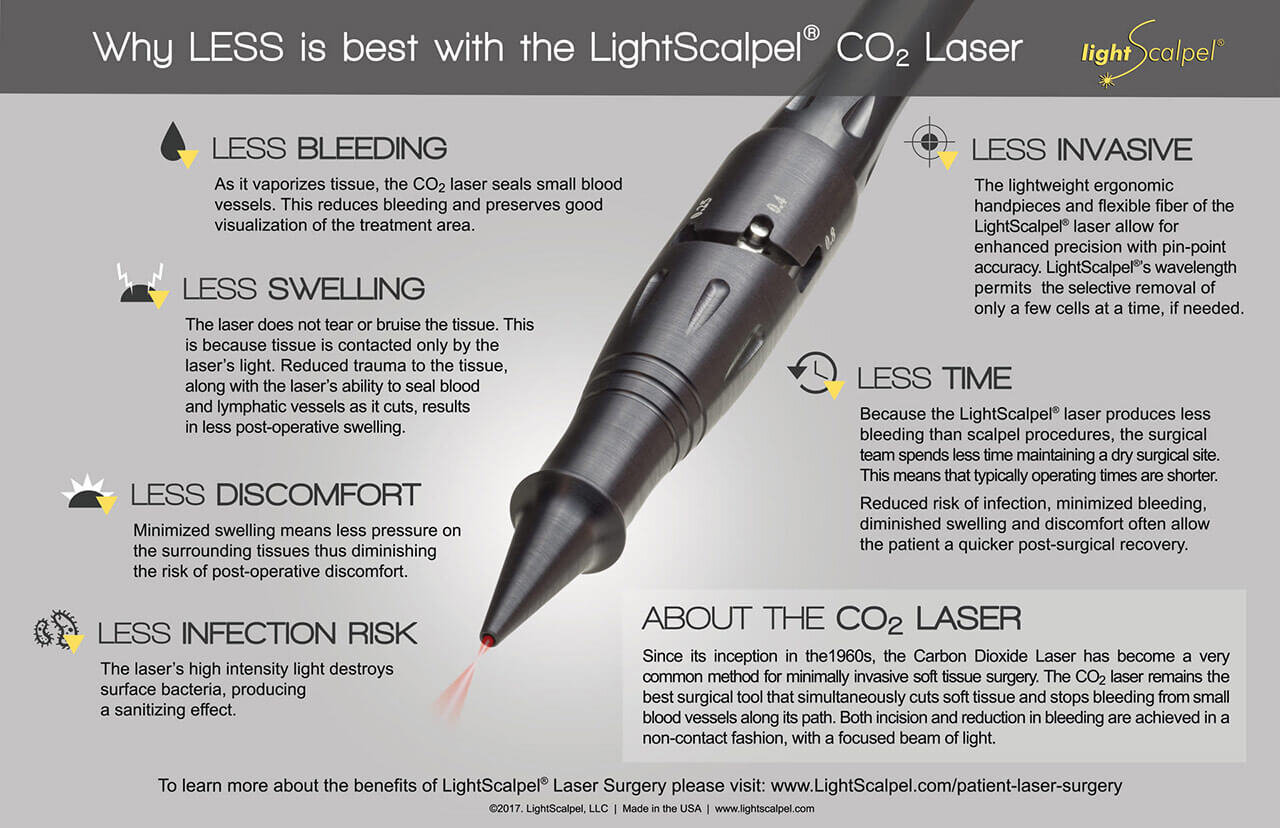LASER DENTISTRY
About the CO2 Laser
Since its inception in the 1960s, the Carbon Dioxide Laser had become a very common method for minimally invasive soft tissue surgery. The CO2 laser remains the best surgical tool that simultaneously cuts soft tissue and stops bleeding from small blood vessels along its path. Both incision and reduction in bleeding are achieved in a non-contact fashion, with a focused beam of light.
The newest technology that our office is currently using is the LightScalpel® CO2 Laser. We are very excited to offer the laser for many different procedures.
Lasers can be safely and effectively used for many intraoral procedures including:
frenectomies (lip and tongue tie)
healing of canker sores
gingivectomies (removal of excess gum tissue)
to control bleeding
Less Invasive
The lightweight ergonomic hand-pieces and flexible of the LightScalpel laser allow for enhanced precision with the pin-point accuracy. LightScalpel’s wavelength permits the selective removal of only a few cells at a time, if needed.
Less Swelling
The laser does not tear or bruise the tissue. This is because tissue is contacted only by the laser’s light. Reduced trauma to the tissue, along with the laser’s ability to seal blood and lymphatic vessels as it cuts, results in less post-operative swelling.
Less Discomfort
Minimized swelling means less pressure no the surrounding tissues thus diminishing the risk oof post operative discomfort.
Less Infection Risk
The laser’s high intensity light destroys surface bacteria, producing a sanitizing effect.
Less Bleeding
As it vaporizes tissue, the CO2 laser seals small blood vessels. This reduces bleeding and preserves good visualization of the treatment area.
Less Time
Because the LightScalpel laser produces less bleeding than scalpel procedures, the surgical team spends less time maintaining a dry surgical site. This means that typically operating times are shorter.
Reduced risk of infection, minimized bleedings, diminishes swelling and discomfort often allow the patient a quicker post-surgical recovery.





